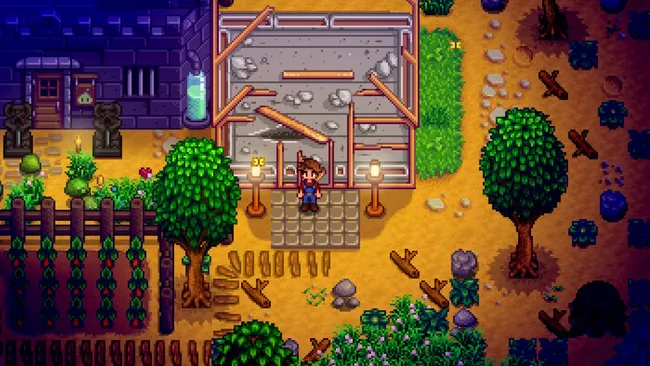
Stardew Valley has become a beloved staple in the indie gaming community since its launch in 2016. With its charming pixel art, immersive gameplay, and deep farming mechanics, it continues to attract a dedicated player base. Recently, Eric Barone, the game’s creator, shared insights into the decision to release the 1.6 update on PC before console platforms. This article delves into Barone’s reasoning and the broader implications for game development and player experience.
The Importance of a PC Launch
Barone has consistently favored releasing updates on PC first, a practice rooted in both practicality and strategy. “PC is where my development journey began,” he explained. “It allows for faster iterations and a more immediate response to player feedback.” By launching on PC, Barone can quickly assess the update’s performance, identify bugs, and refine features based on user input before it reaches console players.
This approach is akin to a “beta test” for Barone. The PC community often serves as a first line of defense against issues that may not have been apparent during the initial development stages. When new content is introduced, there’s a chance it might not work as intended across all systems and setups. Releasing on PC first allows for real-world testing in a diverse environment, where hardware variations and player behaviors can surface unexpected challenges.
Feedback Loop and Iterative Development
One of the standout aspects of Barone’s development philosophy is his commitment to listening to players. “Community feedback is invaluable,” he noted. After the PC release, Barone can monitor discussions on platforms like Reddit and Discord, where players share their experiences and suggestions. This feedback loop helps him make informed decisions about adjustments and improvements.
For instance, in the past, player suggestions have led to significant changes in game mechanics or new features. The 1.6 update is no different; Barone highlighted how player feedback from earlier versions informed many of the new additions. “It’s about creating a dialogue,” he said. “Players often come up with ideas I hadn’t even considered.”
The Challenge of Console Development
Developing for consoles presents unique challenges. Each console has its own set of specifications and requirements, and ensuring that an update runs smoothly across different platforms can be complex and time-consuming. Barone acknowledged these hurdles, stating, “Testing on console is a more involved process, and it requires more resources.”
By launching on PC first, Barone can streamline the transition to consoles. Once the PC version is stable and the majority of issues have been ironed out, the team can shift focus to adapting the update for console platforms. This strategy helps minimize the risks of major bugs or performance issues on consoles, ultimately leading to a smoother experience for those players.
The Joy of Community
The vibrant Stardew Valley community is a significant part of the game’s success. Players share their farming experiences, engage in creative storytelling, and even create mods that enhance the gameplay experience. Barone expressed gratitude for this supportive community, emphasizing that their enthusiasm fuels his passion for ongoing development.
“Seeing players enjoy the game and share their experiences is incredibly rewarding,” he said. “It motivates me to keep improving and expanding the game.” The community’s investment in Stardew Valley creates a feedback-rich environment that is essential for continuous growth.
Looking Ahead
As the 1.6 update rolls out on PC, excitement builds for its eventual release on consoles. Players are eager to experience the new features, including additional content that enriches the farming experience and introduces new gameplay elements. Barone remains optimistic about the future, hinting at ongoing updates and improvements beyond 1.6.
“Stardew Valley is a living project,” he remarked. “As long as there’s interest and support, I’ll continue to explore new ideas and expand the game.” His commitment to evolving the game based on player input ensures that it remains fresh and engaging.
